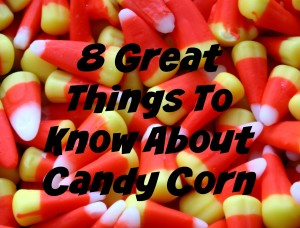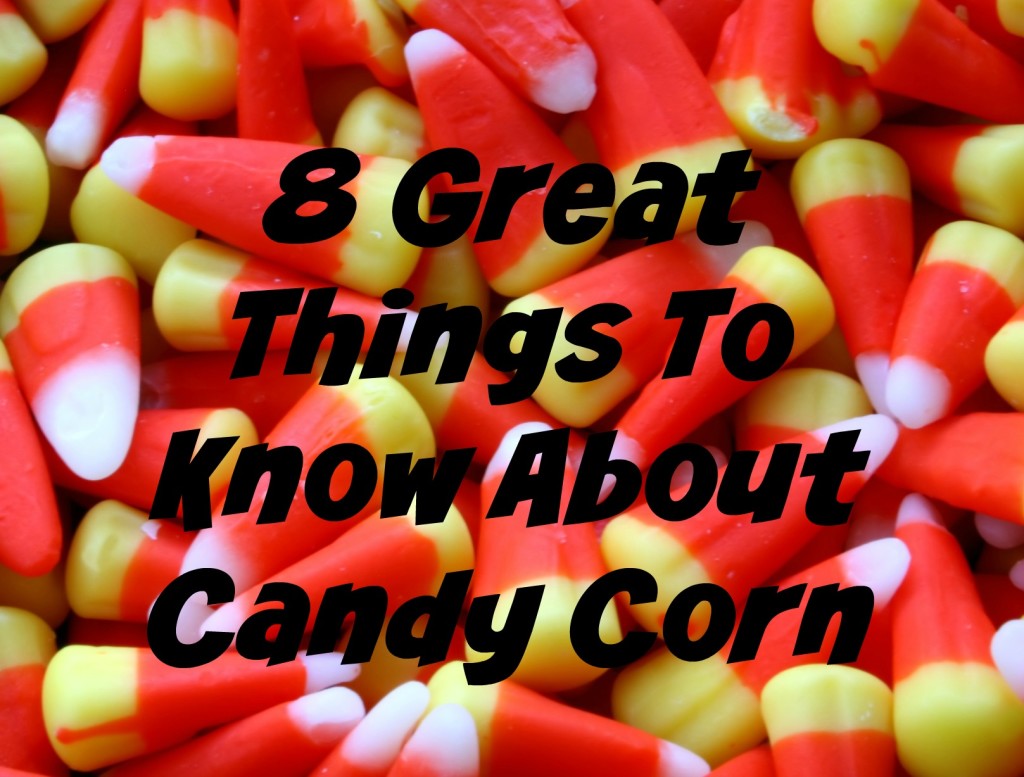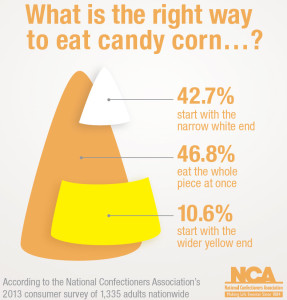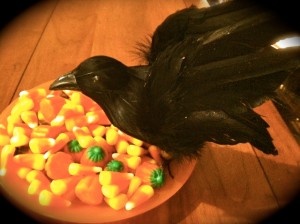
It’s candy corn time! Those chewy and sweet little tri-colored triangles have celebrated over 130 birthdays and are still going strong. Here are 8 things you probably never knew about candy corn:
- Candy corn, created in the 1880s by the Wunderlee Candy Company, was popular among farmers who loved the corn kernel shape that looked different from a lot of other candy. The Goelitz Candy Company, famous for their candy corn, began selling their brand around 1900. They still make candy corn today, but their company name has changed to the Jelly Belly Candy Company (guess what else they make!).
- Candy corn, which has been around for a century and three plus decades, is a “mellow cream,” or a type of candy that’s made from corn syrup and sugar with a marshmallow kind of flavor. It tastes rich, but it’s actually fat-free.
- The original three colors of candy corn — orange, yellow, and white — mimic a corn kernel, although each piece of candy is about three times the size of an actual kernel. The bottom of the triangular candy is yellow, it’s orange in the middle, and the pointy end is white.
- Although 75% of the annual candy corn production is for Halloween, you can find it year round in varying holiday colors:
- Indian corn has a chocolate brown wide end, orange center and pointed white tip, and is often available around Thanksgiving
- Blackberry cobbler candy corn can be found in eastern Canada around Halloween
- Reindeer corn, the Christmas variety, is red, green, and white
- Cupid corn for Valentine’s Day is red, pink, and white
- Bunny corn for Easter is only a two-color candy and comes with a variety of pastel bases (pink, green, yellow, and purple) with white tips
5. Brach’s Candy Corn, which is a very familiar brand
- has nineteen pieces of candy corn per serving
- a serving has140 calories (7.4 calories per kernel), zero grams of fat, 70 mg of sodium, 36 grams of carbs, and no protein
- a large bag of Brach’s candy corn is 22 ounces and has about 300 pieces
- ingredients in Brach’s candy corn: sugar, corn syrup, confectioner’s sugar glaze, salt, honey, dextrose, artificial flavor, gelatin, titanium dioxide color, yellow 6, yellow 5, red 3, blue 1, sesame oil.
6. According to the National Confectioners Association:
- candy makers will produce nearly 35 million pounds of candy corn this year which is equal to about 9 billion individual kernels of corn, enough to circle the moon nearly 21 times if laid end-to-end
- candy corn is so popular that it has its own day; October 30 is National Candy Corn Day.
7. How candy corn was and is made:
- Originally it was made by hand.
- Sugar, water, and corn syrup were cooked into a slurry (a thin mud consistency) in large kettles. Fondant (a sweet, creamy paste made from corn syrup, sugar, and water) and marshmallow were whipped in to give it a smooth texture and a soft bite.
- The hot mixture was poured into “runners,” or hand-held buckets that held 45 pounds of candy mixture. Men called “stringers” walked backwards as they poured the steaming mixture into trays coated with cornstarch and imprinted with kernel-shaped molds. They made three passes; one each for orange, white and yellow.
- Today, the recipe is similar but production is mechanized. A machine fills trays of kernel-shaped holes with cornstarch to hold the candy in corn triangle shapes. The holes are partially filled with white syrup, then orange syrup, followed by yellow syrup. The mold is allowed to cool, the mixture hardens for about 24 hours, then a machine empties the trays, the kernels to fall into chutes, and finally the candy corn is glazed to make it shine.
- A survey of Americans found:
- 8%think the whole piece of candy corn should be eaten at once
- 7% think you should be start eating at the narrow, white end 10.6% like to start eating at the wider yellow end.


